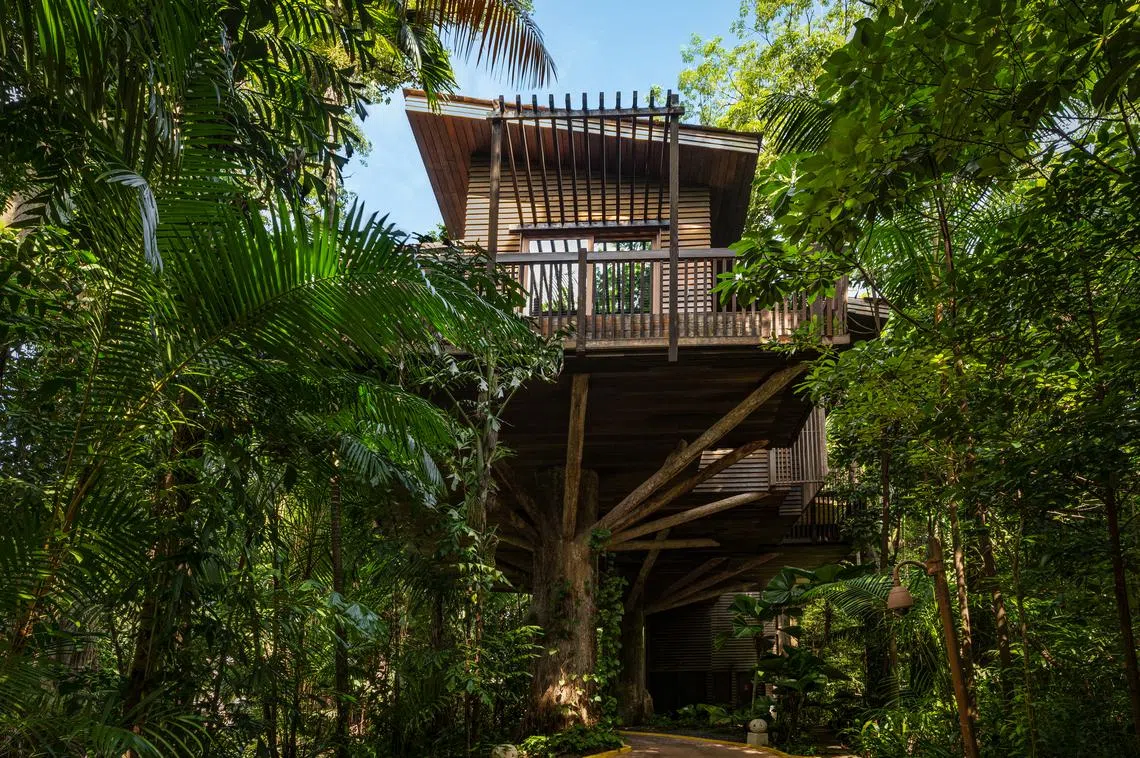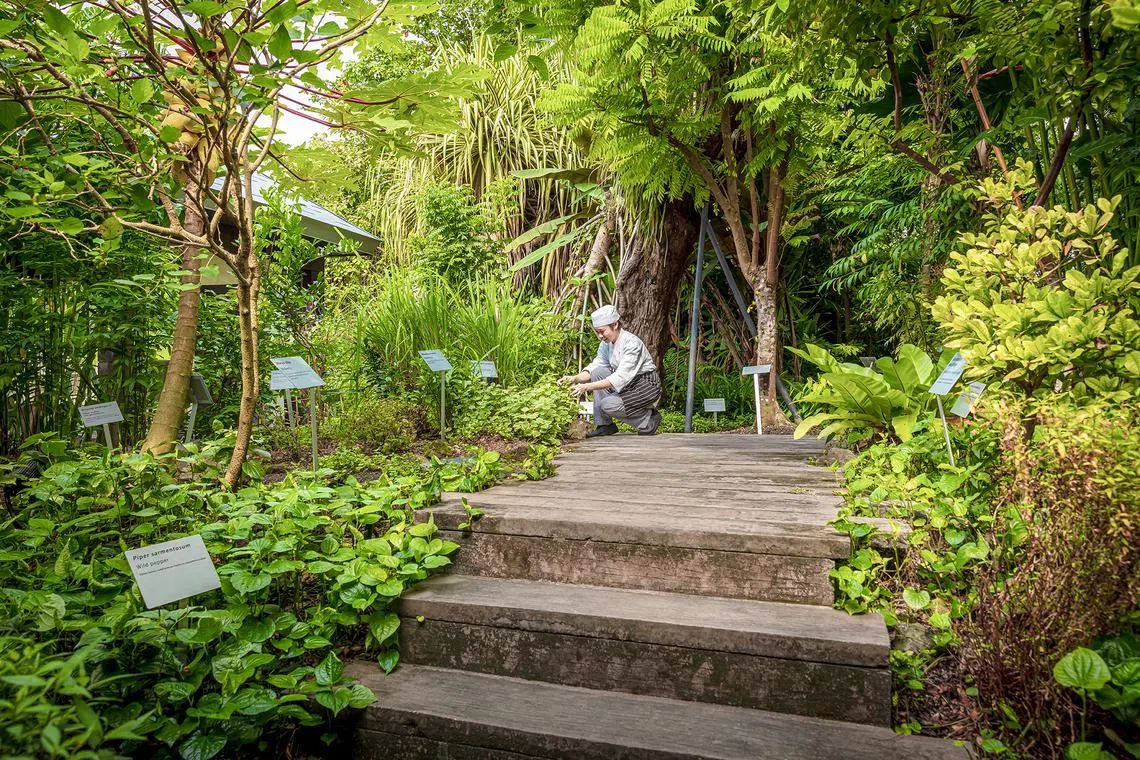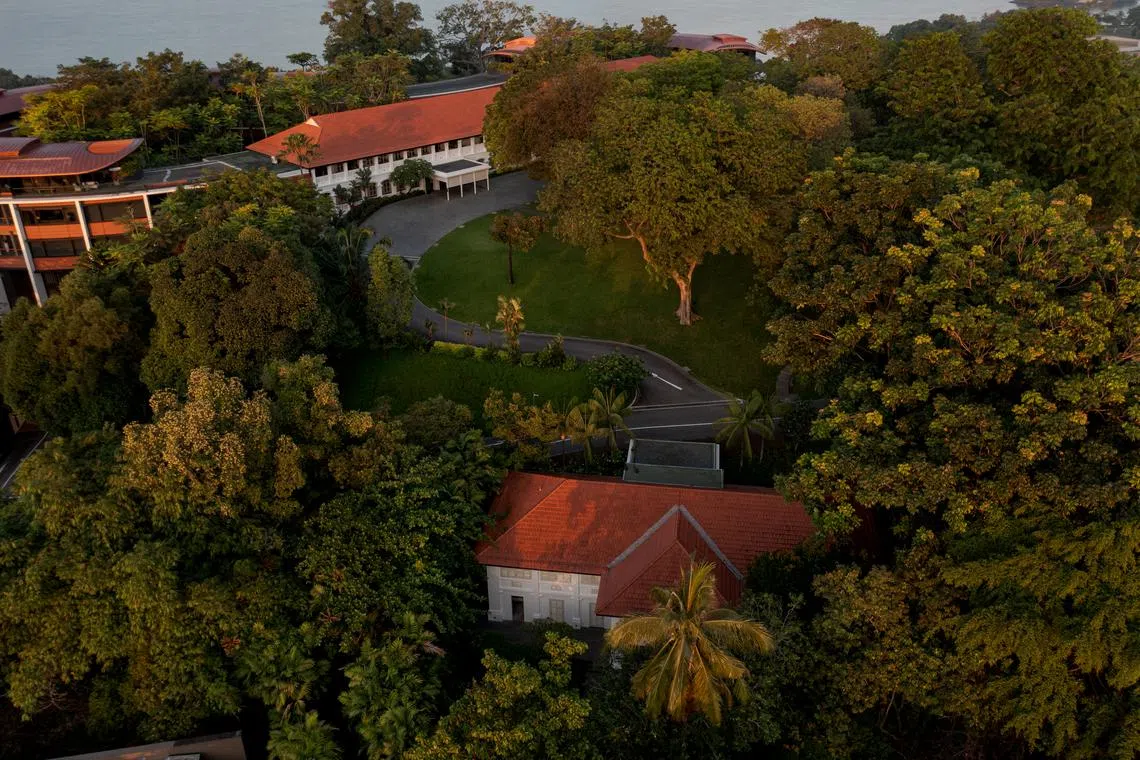Sentosa’s hotels are redefining eco-luxury
At Equarius and Capella, sustainability and hospitality go hand in hand
SENTOSA MAY BE SYNONYMOUS WITH buzzy beach clubs and Universal Studios, but venture off the beaten path and you’ll discover another side of the island: lush rainforest, diverse birdlife and abundant sea creatures.
It’s a delicate balance between promoting tourism and protecting the fragile ecosystem, but two luxury hotels – Equarius and Capella Singapore – are showing the way when it comes to sustainable hospitality.
Equarius Hotel: Wellness at the edge of the rainforest

Often seen as a tranquil retreat amid the buzz of Resorts World Sentosa (RWS), the five-star Equarius Hotel is nestled at the fringe of a tropical rainforest, embodying the hotel’s wellness-first philosophy that promotes clarity, calm and connection to nature.
In the hotel’s deluxe rooms, guests can relax in spaces flooded with natural light, with large windows offering expansive vistas of verdant grounds. For more privacy, its treetop lofts – named after heritage trees such as Angsana and Tembusu – provide an exclusive retreat.
The hotel runs on a complex network of sustainable technologies. It earned the Building and Construction Authority’s Green Mark Platinum certification, thanks to its energy-saving air-conditioning which uses smart controls, 100 per cent LED lighting, water systems that repurpose water from air cooling, and efficient water fittings that conserve precious resources.
For its efforts, it was the first hospitality location in Singapore to achieve the WELL V2 Gold Certification (a global standard developed by the International WELL Building Institute), which tracks how well-being is prioritised across everything from air, light, movement, materials to community.
Navigate Asia in
a new global order
Get the insights delivered to your inbox.

A walk through the property’s herb garden – fragrant with wild pepper leaves, blue pea flowers, and other seasonal plants – offers a sensory reminder of this philosophy. Chefs source some 50 edible plants and herbs from the garden to flavour dishes at the hotel’s specialty restaurants. Close by, the hotel’s eco-pond is one of six water catchment areas in the resort and is a designated biodiversity reserve.
On a wider level, RWS’ commitment to sustainability stretches to its sourcing, earning the Singapore Food Agency’s Farm-to-Table Highest Tier. Each year, RWS procures over 45 tonnes of produce from local farms, including leafy greens, eggs, and barramundi, used across its dining outlets and at conferences. Equarius also took a key role in hosting the Global Sustainable Tourism Conference in November 2024.
Under the RWS 2030 Sustainability Master Plan, RWS aims to reduce its emissions intensity by 2030. “As RWS embarks on its transformative journey, sustainability will remain embedded in all facets of our business,” says a spokesperson. “These green accolades cement the foundations upon which RWS continues to pursue best in class sustainability practices.”
Capella Singapore: Luxury rooted in responsibility

Farther inland, the five-star Capella Singapore offers a luxurious hideaway, with a design that blends traditional architecture and the surrounding 12 hectares of landscape, framed by striking views of rainforest and sea.
The hotel is an eco-leader, gold certified consecutively by EarthCheck (a leading certification, consulting and advisory group for sustainable destinations) in 2023 and 2024. It also has certification from the Global Sustainable Tourism Council. The hotel is one of two in Singapore to have received the Responsible Hospitality Verified Ribbon by Forbes Travel Guide.
Solar panels help to save energy, while a rainwater harvester integrated to a drip irrigation system keeps the gardens lush. In guest rooms, you’ll find glass-bottled Aesop products alongside woven laundry bags, as part of a shift away from single-use plastics.
“At Capella Singapore, we believe true luxury is inseparable from responsibility,” says general manager Paul Jackson. “While achieving net-zero consumption is challenging for any hotel, we remain committed to reducing our impact – from investing in renewable energy to protecting biodiversity.”
Looking ahead, as the demand for responsible travel grows, hotels here must think critically about their environmental impact. It’s no longer enough to simply adopt eco-friendly practices. Sustainability and regenerative tourism must be woven into the very fabric of the guest experience, shaping how hotels operate and engage with the natural world around them.
Decoding Asia newsletter: your guide to navigating Asia in a new global order. Sign up here to get Decoding Asia newsletter. Delivered to your inbox. Free.
Copyright SPH Media. All rights reserved.




